#It’s a faithful remake of a movie that’s over 100 years old based on a book that’s even older so i think tagging for spoilers is silly
Explore tagged Tumblr posts
Text
A Non-Exhaustive List of Things that Delighted Me in Nosferatu 2024
WE GOT:
Possession sex in the first three minutes
Blood drinking in the most visceral dryhumping fashion possible
Animals being eaten raw (explicit)
People being eaten raw (semi explicit)
Children being eaten raw (non explicit)
Phenomenal use of shadows
A doctor character whose voice is identical to Alan Rickman’s??? I legit thought it was him for a sec
A Silly Little Minion Guy
Implied Necrophilia (Actually dead)
Full frontal Necrophilia (Undead)
Both are kinda Romantic
Rats
RATS
RATS ON RATS ON RATS BABY 🐀
Fucking to Spite your Evil Ex
Incredibly deranged acting by Lily Rose-Depp
So many scare chords, very maximalist sound design
A Lot of Fluids
My Gawd, that’s a lotta fluids
Bizarre as hell jump cuts all over the place
Sumptuous period accurate costuming
*Exquisite* Cinematography
Nicholas Hoult looking progressively more and more sweaty and pathetic
Doorways framing characters Significantly
Engrossingly (emphasis on Gross) commanding performance by Bill Skarsgård
Insane voicework
Technically a Christmas movie the way Die Hard is technically a Christmas movie
Orlok’s Or-cock
It’s just hanging there
Menacingly
Willem Dafoe at one point: I’VE SEEN THINGS THAT WOULD MAKE ISAAC NEWTON WANT TO CRAWL BACK UP HIS MOTHER’S WOMB!
AND MORE!
Magnificent piece of art. Horny in the most Grotesque way. 4 stars to me bc I’m a freak. Has inspired me to watch the original 1922 version. Go watch with your friends. Do NOT watch with your family unless they’re really really chill. Bring a drink and take a sip every time it gets Weird. Enjoy 😘🧛🏽🩸🦇
#Nosferatu#nosferatu 2024#Movie of all time#nosferatu spoilers#nosferatu 2024 spoilers#It’s a faithful remake of a movie that’s over 100 years old based on a book that’s even older so i think tagging for spoilers is silly#But i will anyway so nobody try to jump into my replies or dms with an attitude capiche
1K notes
·
View notes
Text
Explained | Snow White live-action remake: Why is Disney classic stirring modern controversy? - Entertainment News
"Zegler's honest, but perhaps ill-advised, remarks on the original film's dated portrayal of gender dynamics and her vision for a more empowered Snow White added fuel to the fire. In an interview last year, she told Extra TV, "The original cartoon came out in 1937, and very evidently so. There’s a big focus on her love story with a guy who literally stalks her. Weird! Weird! So we didn’t do that this time. We have a different approach to what I’m sure a lot of people will assume is a love story just because we cast a guy in the movie. All of Andrew’s scenes could get cut, who knows? It’s Hollywood, baby (Andrew being actor Andrew Jonathan who plays the role of a prince who awakens Snow White with a kiss)."
The response to her comments, let's say, was less than wholesome. Traditionalists yearning for the comforting embrace of nostalgia and seeking a faithful recreation of the animated classic, reviled Zegler, sharing on social media claiming how Zegler is dark-skinned and ugly as compared to the image of Snow White they have in their minds. They will probably continue to complain until the movie comes out. or even after that. Some did celebrate her comments, and the chance to challenge conventions in a new adaption of the classic tale for modern audiences.
The clash between tradition and progress extended to the portrayal of love and feminism. Zegler's assertion that the prince in the original was akin to a "stalker" was met with resistance from those who romanticised everything about the original. Once you become emotionally attached to something or even an idea of that something, reason vanishes. Zegler's declaration that the new Snow White wouldn't rely on the prince for salvation challenged the very idea of the story those traditionalists had in their minds. Thus, Zegler became not Snow White but the Evil Queen for them."
YO, CAN SOMEONE SEND ME SOME BOOTS? I JUST STEPPED INTO A VAT OF BULLSHIT! Below is a list from Wiki of Love Action remakes of Snow White, just in the 2000s. There were over 12 others before then. Two of them from Germany, featuring ONLY the Dwarves. Was the writer of this article counting on short term memory?
7 Dwarves – Men Alone in the Wood (7 Zwerge – Männer allein im Wald) (2004), a German comedy film
The Brothers Grimm (2005), an adventure fantasy film directed by Terry Gilliam and starring Matt Damon, Heath Ledger, and Lena Headey
7 Dwarves: The Forest Is Not Enough (7 Zwerge – Der Wald ist nicht genug) (2006), sequel to the 2004 German film 7 Dwarves – Men Alone in the Wood
Sydney White (2007), a modernization, starring Amanda Bynes
Blancanieves (2012), a silent Spanish film based on the fairy tale.
Mirror Mirror (2012), starring Julia Roberts as the Evil Queen Clementianna,[93] Lily Collins as Snow White, Armie Hammer as Prince Andrew Alcott, and Nathan Lane as Brighton, the Queen's majordomo.
The Huntsman series:
Snow White and the Huntsman (2012), starring Kristen Stewart, Charlize Theron, Chris Hemsworth, and Sam Claflin.
The Huntsman: Winter's War (2016), which features Snow White as a minor character.
How is it that people are throwing so-called fits over live adaptations when some of these others are quite recent and varied in storyline? We're all used to the modern twisting of fairy tales. What some are not used to is being so inartifully and clumsily lectured about male female relationships by an actress who looks about 12 years old. You know what this is about: Interference and ongoing attempted sabotage of the Disney brand.
2 notes
·
View notes
Link
The high-profile remake, with an all-Asian cast, a PG-13 rating and a politically-charged star, was always going to pose major risks. Then the coronavirus upended its entire release plan.
Liu Yifei, star of Disney's live-action remake of Mulan, lives in Beijing, but she is originally from Wuhan, epicenter of the coronavirus. In January, the 32-year-old actress left China for Los Angeles to begin press for the film, weeks before the virus' outbreak, which has now infected more than 77,000 people, killed more than 2,500 and wreaked havoc in her home country. She says she doesn't have any family or close friends personally affected by the disease — she left Wuhan when she was 10 — but the epidemic has added an impossible-to-foresee variable to her film's March 27 worldwide release.
Liu pauses when asked about the outbreak. "It's really heavy for me to even think about it," she says. "People are doing the right thing. They are being careful for themselves and others. I'm so touched actually to see how they haven't been out for weeks. I'm really hoping for a miracle and that this will just be over soon."
In China, Liu is a household name, nicknamed "Fairy Sister" for her elegance and beauty. Modeling since age 8, she broke out in the 2003 Chinese TV series Demi-Gods and Semi-Devils, a commercial hit in China and the highest-rated Chinese drama in Taiwan at the time, and hasn't stopped working in film and TV since, earning fashion partnerships with Adidas, Shiseido and Armani along the way.
Disney and director Niki Caro selected Liu from more than 1,000 aspirants from around the world to star as Hua Mulan, the Chinese heroine who disguises herself as a man to fight in the Imperial Army in a film carefully designed to appeal to Western and Chinese audiences alike. But now there's a question of when Mulan will be released in China. With the coronavirus shutting down all 70,000 of the country's theaters since Jan. 24, it's unclear — and more unlikely every day — that multiplexes will reopen in time for its planned release. (Several high-profile U.S. films, including Universal's Dolittle and 1917 and Searchlight's Jojo Rabbit, saw their February releases scrapped.) "It certainly has worldwide and global appeal, but there's no denying that this is a very important film for the Chinese market," says Comscore analyst Paul Dergarabedian. "It's a huge blow for Disney if it doesn't release in China." Disney president of production Sean Bailey says he's "looking at it day by day."
Of course, this puts added pressure on the $200 million budgeted film — the priciest of Disney's recent live-action remakes — to perform in the U.S. and the rest of the world. Liu, who is enveloped in her own storm of controversy based on a political social media post about the Hong Kong protests, says she is trying hard not to think about all that. "It would really be a loss for me if I let the pressure overtake my possibilities," says the actress, who learned English when she lived in New York as a child for four years with her mother, a dancer, after her parents' divorce.
Even before the outbreak of the virus, Mulan — the first Disney-branded film with an all-Asian cast and the first to be rated PG-13 (for battle scenes) — would have marked one of the studio's riskiest live-action films to date. While the original 1998 Mulan was a critical and commercial hit, garnering a Golden Globe and Oscar nomination and grossing more than $300 million worldwide ($475 million today), it faltered at the Chinese box office. Part of the reason is that the Chinese government stalled its premiere for nearly a year because of lingering anger over Disney's 1997 release of Kundun, Martin Scorsese's Dalai Lama movie that dealt with China's occupation of Tibet. By the time Mulan reached theaters in late February 1999, most children had returned to school after the Chinese New Year holiday and pirated copies were widely available. For the new film, the plan was to counter piracy by releasing the movie in China the same day as the rest of the world, a strategy that's no longer possible.
The film also has tested the ability and tolerance of Disney — which aims to be ideologically neutral — in managing global political fallout. In August, Liu stirred up a major controversy when she reposted a pro-police comment on Chinese platform Weibo (where she has more than 66 million followers) at the height of the violence in Hong Kong. Her action was seen by critics of the Chinese government as supporting police brutality; soon after, the hashtag #BoycottMulan started trending on Twitter. Liu, who has American co-citizenship from her time in the U.S., was harshly criticized around the world for supporting oppression.
"I think it's obviously a very complicated situation and I'm not an expert," she says now, cautious in the extreme. "I just really hope this gets resolved soon." When pressed, Liu, whose answer seemed rehearsed, declines to say much more, simply repeating, "I think it's just a very sensitive situation." (Bailey also deflects when asked: "Yifei's politics are her own, and we are just focused on the movie and her performance.")
"Most Chinese celebrities choose to avoid posting such political statements because of the risks to their careers internationally," says Dorothy Lau, a professor at the Academy of Film, Hong Kong Baptist University. But though Liu's post drew criticism globally, some experts believe the political drama could actually result in more support for the film in China. "At the time, the government came out in various publications supporting the film very strongly," says USC professor Stanley Rosen, who specializes in Chinese politics and society. "There's a real impetus on the part of the Chinese government to make this work. I'm sure the government is going to try to show that the boycott has had no effect." And while her comment might still anger filmgoers in Hong Kong, where the recent live-action Aladdin took in $8 million, that market is tiny compared to the mainland (total 2019 Hong Kong box office was $245 million compared with China's $9.2 billion). "Most people outside Hong Kong have likely forgotten about this controversy," says Rosen. "But the Chinese government does not forget these things."
The fact that this version of Mulan is a large-scale war epic inspired more by the ancient Chinese ballad than the original animated film may also help win fans in Beijing, but the choice carries its own significant risks: The film needs to satisfy Chinese audiences raised on the legend while not disappointing a generation of fans in Asia (and elsewhere) for whom the animated film is foundational. "People would come in to audition and would say, 'Sorry, I know this is really unprofessional, but before I start, I just want you to know, the animated movie was the first time I saw someone that looked like me speak English in a movie theater,' " says producer Jason Reed. "The stakes couldn't be higher."
Mulan also represents a leap of faith in the film's director, Caro, whose previous two films boasted budgets of about 10 percent of Mulan's (The Zookeeper's Wife and Disney's 2015 sports drama McFarland USA were each in the $20 million to $25 million range). Caro, 53, was not Disney's first choice. Before hiring the New Zealand filmmaker, the studio targeted directors of Asian descent, including Taiwanese Oscar winner Ang Lee (he was busy promoting Billy Lynn's Long Halftime Walk) and Chinese helmer Jiang Wen. Still, Caro showcased a knack for representing cultures outside of her own with her 2002 debut Whale Rider, which follows a young Maori girl who wants to become chief, a role traditionally reserved for men.
The feminist story of Mulan resonated deeply with Caro. "When I first started wanting to be a filmmaker, there was so little precedent for women doing this [big studio] work," she says. She has now directed the most expensive live-action film by a woman, joining only a handful (Kathryn Bigelow, Ava DuVernay and Patty Jenkins) who have helmed films costing more than $100 million. "Patty changed the game with Wonder Woman. It was like a shot of adrenaline for me as a filmmaker," says Caro, who assembled a mostly female-led crew, including cinematographer Mandy Walker, costume designer Bina Daigeler, makeup designer Denise Kum and first assistant director Liz Tan.
To those still upset that an Asian filmmaker didn't get the job, Caro responds: "Although it's a critically important Chinese story and it's set in Chinese culture and history, there is another culture at play here, which is the culture of Disney, and that the director, whoever they were, needed to be able to handle both — and here I am."
Soon after Caro's hiring, rumors about the movie began to swirl online. Years of studios centering Asian movies around white protagonists (from Scarlett Johansson's Ghost in the Shell to Matt Damon's The Great Wall) meant the threat of whitewashing loomed large. An early report online claimed that the first draft, penned by Elizabeth Martin and Lauren Hynek, featured a white male protagonist.
"This is the first time I've been on a big touchstone movie with the internet what it is today. And I had a Google alert set, so I'd see these things, 'Oh, there was originally a white male lead, or they're casting Jennifer Lawrence,' and they were all just made up," says Reed, who adds that there may have been two non-Chinese characters in the initial script, but both were secondary roles.
The rumors may have been unfounded, but the fallout was real: The Lawrence-as-Mulan story sparked a 2016 petition, "Tell Disney You Don't Want a Whitewashed Mulan!" drawing more than 110,000 signatures.
Ironically, as that rumor swirled, Caro struggled to find an actress to play Mulan. The global hunt began in October 2016, when Caro sent a team of casting directors to each continent and virtually every small village in China. They were looking for an actress who could play Mulan across three phases, from a young woman unsure of her place to a soldier masquerading as a man and, finally, as an empowered warrior. She had to be fluent in English, handle the physical demands of martial arts and deliver the more emotional moments with Mulan's family. "She's a needle in a haystack, but we were going to find her," says Caro. "It's impossible to make this movie without this person."
Though the studio cast a wide multinational net, Bill Kong — a veteran Chinese producer known for Crouching Tiger, Hidden Dragon and Monster Hunt who was brought on as a producer on Mulan — advised Caro that in order for this film to play well in China, not just anyone of Asian descent would work. "The first thing I told her was, 'Hire a Chinese girl. You can't hire a Japanese girl to do this,' " he says.
Actresses who made it past that initial audition were brought to Los Angeles, but, after vetting several promising candidates for months, Caro decided to start over. (The search dragged on for so long that Disney delayed the original November 2018 release date.) Eventually, Liu, who had been unavailable during the first pass because of a TV show in China, was able to audition.
"I was determined that whoever played Mulan was not going to be fragile and feminine," says Caro. "She had to pass as a man in a man's army." So the director and a trainer put Liu through a 90-minute physical assessment, with extreme cardio and weight exercises. Other actresses fared less well. "Boy, did they flame out," says Caro with a laugh. But Liu "never complained once, never said, 'I can't.' She went to her limits."
With Liu, Disney also found an actress who could speak English, was familiar with martial arts from her TV work in China and, most importantly, was known to the Chinese market.
While Liu spent three months training for the role in New Zealand, Caro finished up her own extensive research. She took multiple trips to China and spoke to dozens of experts — including the world's foremost specialist on Tang dynasty military strategy. She also studied the 360-word Chinese poem The Ballad of Mulan, which first told the young heroine's story. The legend, which originated in the fifth or sixth century CE, is a tale as familiar in China as the story of Joan of Arc or Paul Bunyan in the West, and it's been adapted many times into plays, operas and films.
"I certainly wasn't aware of how deeply important it is to Mainland Chinese — all children are taught it," says Caro. "She is so meaningful that many places I went, people would say, 'Well, she comes from my village.' It was wonderful to feel that profound connection — but also terrifying."
As soon as the first trailers rolled out, so did the grumblings about factual inaccuracy, like the choice to situate Mulan's family in a tulou, a traditional round structure that housed several clans. These homes were mostly present in southern China, in what is now Fujian province (Mulan is said to be from the north), and would not have existed at the time she lived.
"I told [Caro] to not be too concerned about the historical accuracy," says Kong. "Mulan, though very famous, is fictional. She's not a historical person."
Disney tested the film thoroughly with Chinese audiences, including its own local executives. In an early version, Mulan kissed love interest Chen Honghui (Yoson An) on a bridge when they were about to part. "It was very beautiful, but the China office went, 'No, you can't, that doesn't feel right to the Chinese people,' " says Caro. "So we took it out."
Caro and the writers, Amanda Silver and Rick Jaffa (the husband-and-wife team behind Rise of the Planet of the Apes and Jurassic World who rewrote the original script), also had to consider the passionate fans of the 1998 film. Most Disney remakes, like Beauty and the Beast, Aladdin and The Lion King, have remained loyal to the tone and structure of the animated source material while adding a new song or character. Departing from that formula wasn't a swift decision. "We had a lot of conversations about it," says Reed. Ultimately they wanted "to tell this story in a way that is more real, more relatable, where we don't have the benefit of the joke to hide behind things that might be uncomfortable and we don't break into song to tell us the subtext."
They swapped the musical numbers and funny animal sidekicks for a large-scale war epic in which Mulan takes her father's place in the Imperial Army. "It's a woman's story that has been told for centuries but never by women, and we felt like it was really time to tell that story," says Silver. The question is whether Generation Z and millennials, who fell in love with these animated tales as kids and helped boost Aladdin to its $1 billion global haul, will embrace the direction. "To be honest, we really go by our gut and what creatively excites the team here," says Bailey. "I think it shows that there can be different approaches to these [movies] that have validity."
When word leaked that Mushu, the silly dragon sidekick (originally voiced by Eddie Murphy), would not be included, some fans expressed disappointment on social media. But the character's disappearance makes sense in the Chinese context. "Mushu was very popular in the U.S., but the Chinese hated it," says Rosen. "This kind of miniature dragon trivialized their culture."
Unlike its Marvel-branded films, Disney live-action movies must appeal to significantly younger audiences. Yet Caro wanted to make a real war movie. "You have to deliver on the war of it," she says, "and how do you do that under the Disney brand where you can't show any violence, gratuitous or otherwise?" She took advantage of the film's stunning locations, like setting a battle sequence in a geothermal valley, where steam could mask the fighting. "Those sequences, I'm proud of them. They're really beautiful and epic — but you can still take kids. No blood is shed. It's not Game of Thrones."
Disney's past live-action performance in China is a mixed bag. Both The Lion King ($120.5 million there) and Jungle Book ($148 million) enjoyed strong showings. Aladdin earned only $53 million, while 2017's Beauty and the Beast took in just $84 million (though it earned $1.3 billion worldwide).
Of course, the expectations for Mulan in China are much higher. "They will eventually release it in China," Dergarabedian notes. "It's just a matter of when and what effect that might have." Some analysts forecast that the film could match the success of the Kung Fu Panda series. The third movie, released in 2016, earned north of $144.2 million and became the country's biggest animated film ever. It was praised for being a Hollywood film that understood and showed respect toward the Chinese culture. Panda, however, had the advantage of being a Chinese co-production, which guarantees a larger share of the market — an advantage Mulan doesn't have.
Caro thinks about the film's fate there in more than simply financial terms. "Of course it's vitally important that it succeeds in China," she says, "because it belongs to China."
16 notes
·
View notes
Text
Religion’s Rocky Relationship with Horror Film: The Conjuring & [REC].
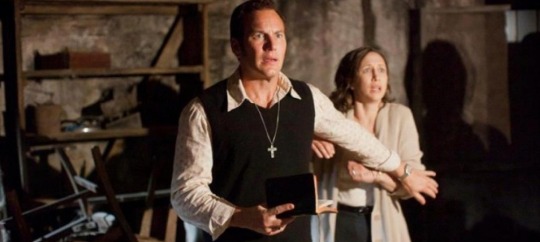
The horror genre has had ties with religion, going back to its roots in Gothic literature. The vampires in Dracula were warded off by religious icons and holy water and possession is often the work of the devil. Religion is often the saving force; the priest exorcises the devil and crucifixes repel the advances of the blood sucking vampires. However, what happens when religion can’t save the day?
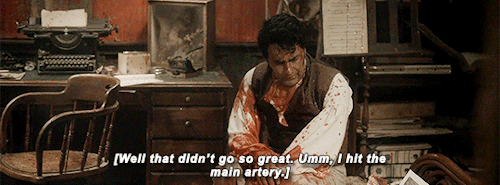
In an increasingly secular society, horror films have changed their representations of religion, either becoming suspicious of it, or scrambling to portray religion as the saviour in horrific situations. Two contemporary horror film franchises, one American, one Spanish show both sides of this. James Wan’s The Conjuring and Balaguero & Plaza’s [REC]. Although these films are wholly different in style and subject matter, this contrast enlightening when looking at how horror can interact with religion.
[REC] is a found footage film, shot by a journalist documenting a night in the life of a Barcelona fire station. They are called out to an apartment block, which is very quickly put under quarantine upon their arrival. Over the course of the film we discover that a deadly infection is spreading around the apartment block, seemingly originating in one of the residents’ dog. From this, the audience assumes rabies, which is a common explanation for zombie movies, and in this case, the horrific and animalistic nature of these ‘zombies’ does not dispute this. On the surface, [REC] appears to be a zombie apocalypse film and it pretty much is, until the end segment of the film.

As the film reaches its climax the filmmakers enter the penthouse to find a room filled with religious iconography alongside newspaper clippings reporting a girl possessed. This immediately switches this film from your typical zombie apocalypse film, alluding to something more sinister. On watching this part for the first time, I just thought that they were trying to give a religious explanation for the infection, it was just a misinterpretation, however on viewing [REC]2 it explicitly connects the infection with demonic possession.
I don’t know about anyone else, but for some reason the film became 100% creepier as soon as they entered the penthouse and saw what looked like a conspiracy theorists obsession, paired with the log of a Vatican agent on old tapes playing in the background. This mystery is completely unexpected and turns the whole film on its head.
But why bring religion into what, on the surface appears to be a mere zombie outbreak movie? The answer can be found in Spain’s political past. Spain was under the control of dictator Francisco Franco from 1936 to 1975. Franco took power after the Nationalist victory in the Spanish Civil war, his rule emphasised conservative values, including putting a great deal of importance on Catholicism, which was the national religion during his rule. Films during his reign were heavily censored, sex, politics and religion were all no-go areas in films made in Spain during this period. After his death in 1975, there was a great change in Spain, with the country becoming more liberal (Scarlett, 113). However, Elizabeth Scarlett in Religion and Spanish Film states that although Spain somewhat abandoned Catholicism, “the motifs of Catholicism were never abandoned” and states that Catholicism is ingrained in the works of Spanish directors (171).
Therefore, [REC]’s religious imagery does not simply contain this to evoke an ominous feeling in the viewer, it is because of the lingering national Catholicism of Spain. However, in this case Catholicism is not presented as the saviour, in fact, it is the very cause of what occurs in the apartment block.
The source of the infection is the girl in the newspaper cuttings who is apparently possessed by demons, the agent kidnaps her and attempts to find a cure for the apparent biological demonic possession, however, this only makes the enzyme mutate and become highly infectious. Andy Willis suggests that for Spain with its religious history, “such references would potentially have great significance for certain members of the audience who might be willing to believe in a potential Vatican inspired conspiracy rather than excepting a supernatural rationale for the virus” (58). Does this belief, therefore lie in the potential distrust that people may feel for religion, as they had been repressed by it for years?
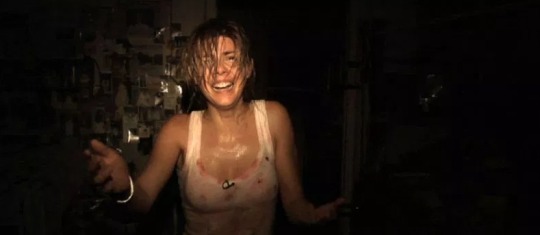
There is only a hint of the religious involvement in the first film, we are presented with mere speculation, however, the sequel builds upon the conspiracy providing more information about the Vatican involvement in the infection, shedding light on the seemingly demonic origins.
We hear the infected people speak in a demonic voice, repelled by items of religious significance, which immediately takes the film into the realm of the demonic and consequently heavily religious. Something that can have a voice and act in such an animalistic manner is wholly disturbing, and although the mystery is being revealed, the eeriness is still there.

Although The Conjuring may seem quite far removed in tone and style to [REC], the theme of demonic possession is at the centre of both narratives. On its release in 2013, The Conjuring was a huge hit, grossing $319.5 million worldwide, $137.4 million of that from the US. What is it about this film makes it so endearing to audiences?
I have always loved a good supernatural horror film, and this is an excellently made one. Yes, it is scary, but for me a well thought out narrative is always what I look for in a horror film. I was also rather drawn to the characters of Ed and Lorraine, played wonderfully by Patrick Wilson and Vera Farmiga. Although the characters of Ed and Lorraine are based on real people I still view the film as a work of fiction, because I don’t believe in mediums, or ghosts for that matter, as much as I would like to.
For others the story may seem completely plausible, if you believe in ghosts, God and the devil. The film is so heavily saturated with religious imagery and the script, written by the Hayes brothers (who are very Christian) are not afraid to admit that The Conjuring is a film heavily influenced by Christian values, if not a light piece of Christian propaganda. In an interview Chad Hayes stated that “we want people after experiencing our movie to question, where are they? Where am I in my own faith? Where am I in my belief? The Lord has authority overall, and so here we are”.
Being party to this information has changed the way I view the film. I must admit I am rather put out by the fact I was drawn into a film filled with this kind of preaching. There is one point where Ed looks worryingly at the father of the haunted family after he says none of the kids are baptised, essentially implying they have set themselves up for possession because they are not part of the church; providing a strange narrative based on the notion that the US is losing its faith.
The basic premise of The Conjuring films is that religion can save the day. I did notice this a lot more on watching the second one, but on re-watching the first one it is so stark. The almost saint-like depiction of Lorraine is perhaps the most apparent, more so in the second film in which she is the almost spiritual guider to the young girl who is being possessed by the demon, she acts as a kind of motherly saviour and martyr, who has suffered greatly due to her God-given gift.

The US is lead by religion, it is seen in every element of their culture, from the puritans to the present day. Politics is saturated by religion and is used to justify so many things for example, the continued control over women’s bodies. Now, with the ever-changing world religion is slowly being rejected by many, mainly the youth of the country, the emphasis on religion is going down. The Conjuring appears to be a comment on this, whilst also desperately attempting to re-ignite the countries faith. But did it work? The success of the film does make me wonder, but were the film goers flocking to the cinema due to the religious nature of the film, or just for the scares?
With two films centered around demonic possession there are interesting notes to make about their countries relation to religion. One that has rejected Catholicism and is therefore suspicious and not afraid to critique it, and the other desperately clinging to religion, attempting to scare the audiences into thinking that God can save you from demons. With all that in mind, religion does evoke such a sense of fear in horror viewers, whether they are faithful or not. I for one, would love to see more mainstream horror films in the vein of [REC], openly critiquing religion, rather than so many narratives where religion is the saviour, when in fact, it causes most of the world’s problems right now.
By Siobhan Eardley.
Works Referenced:
Goodwyn, Hannah. “Screenwriters Chad and Carey Hayes on The Conjuring and God”. CBN.com.
The Conjuring. Dir James Wan (2013).
The Conjuring 2. Dir James Wan (2016).
[REC]. Dir. Jaume Balagueró & Paco Plaza (2007).
[REC]2. Dir. Jaume Balagueró & Paco Plaza (2009).
Scarlett, Elizabeth. Religion and Spanish Film. Michigan. UP of Michigan Press: 2014, JSTOR. Web.
Wills, Andy. Transnational Film Remakes. Edinburgh. Edinburgh UP: 2017. JSTOR. Web.
#The Conjuring#Film#Review#Horror#[REC]#zombies#religion#film critic#films#horror films#writer#The Conjuring 2#Vera Farmiga#Patrick Wilson#James Wan#[REC]2#rec#rec2#Spain#spanish film#zombie film#possession#demons#demonic possession#film essay#essay#zombie apocalypse#ghosts
10 notes
·
View notes
Text
Fantasia
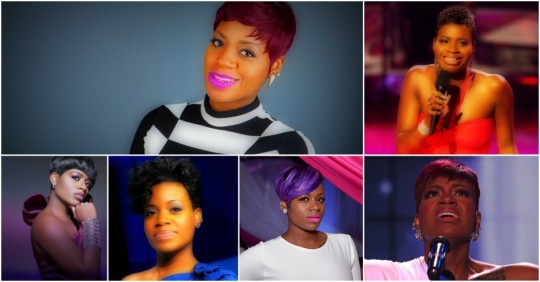
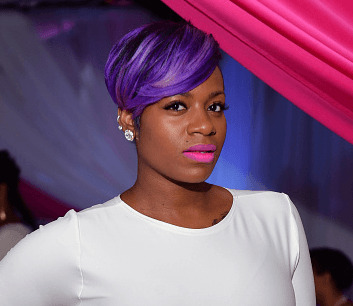
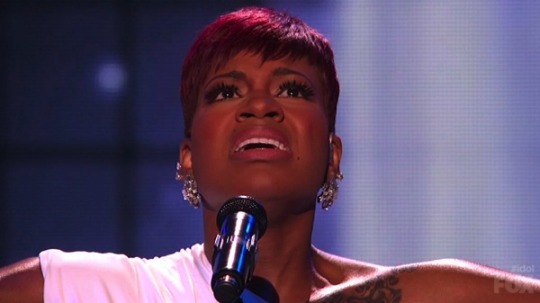

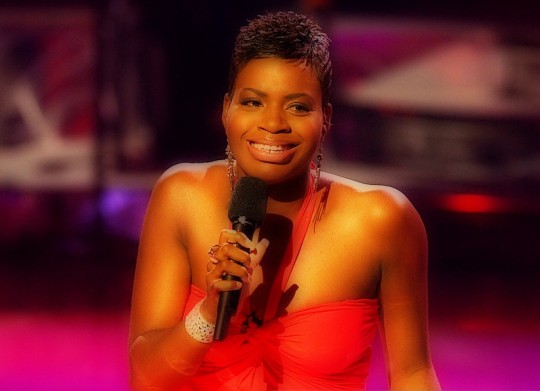
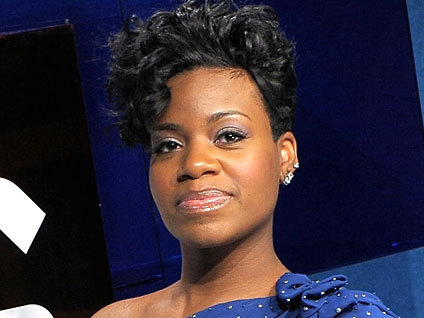
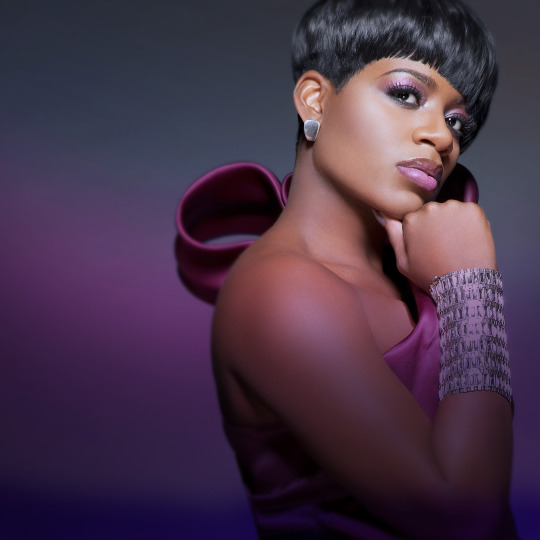
Fantasia Monique Taylor (née Barrino; born June 30, 1984), known professionally by her mononym Fantasia, is an American R&B singer, songwriter, and actress. She rose to fame as the winner of the third season of the reality television series American Idol in 2004. Following her victory, she released her debut single, "I Believe," which debuted at number one on the Billboard Hot 100. Subsequently, she released her debut album, Free Yourself, which went on to be certified Platinum by the RIAA and garnered Taylor three Grammy nominations in 2006.
In 2006, she released her second album, Fantasia, which featured the single "When I See U" which topped the Billboard Hot R&B/Hip-Hop Songs chart for eight weeks. The album was certified Gold by the RIAA and received three Grammy nominations in 2008. She then played the part of Celie in the Broadway musical The Color Purple, for which she won a 2007 Theatre World Award. Her third studio album, Back to Me, was released worldwide on August 24, 2010 and features the single "Bittersweet," which peaked in the top ten on the R&B chart. The single won her a Grammy for Best Female R&B Vocal Performance. As of February 2012, Taylor has sold 2,842,000 albums and 1,425,000 tracks in the United States. In 2012, VH1 ranked her number 32 out of the 100 Greatest Women in Music.
On April 18, 2013, Taylor returned to American Idol singing "Lose to Win." The performance dubbed "dynamic, passionate and powerful" won her fervent expressions of approval from the show's current judges and a wild ovation from the live audience. Moreover, she has received rave reviews in the media for the performance. In November 2013, Taylor returned to Broadway in the musical After Midnight. On October 16, 2014, she was inducted into the North Carolina Music Hall of Fame.
Taylor has been nicknamed "Baby Patti LaBelle" by her idol Patti LaBelle.
Early life
Fantasia Taylor was born Fantasia Barrino to Diane and Joseph Barrino and raised in High Point, North Carolina. She began singing at the age of five. Taylor cites Aretha Franklin, Patti LaBelle and Tina Turner as her biggest musical influences. Music runs in her family. R&B duo K-Ci & JoJo, formerly of Jodeci, are her first cousins. Her uncles, The Barrino Brothers, were a 1970s R&B band.
Despite the travels, she attended Andrews High School in High Point, North Carolina. Feeling embarrassed and harassed after she was raped by a classmate, she dropped out of high school. She became pregnant at 16, and on August 8, 2001, gave birth to her daughter, Zion Quari Barrino with her ex-boyfriend, Brandel Shouse.
Career
2004–05: American Idol and Free Yourself
Taylor's show was a heartfelt staging of the Porgy and Bess standard "Summertime" that left her in tears from "feeling the song" and earned praise from the judges and was named amongst the AOL's 2004 list of greatest television moments.
For the final performance of the season, Taylor offered a second performance of "Summertime" that again drew praise from the judges; Simon Cowell remarked that she was the best contestant to ever compete in any competition, including the more than seventy Idol champions crowned nationally and internationally since the show began its first global incarnations. On the finale, over 65 million votes were cast in order to determine the winner on May 26, 2004, up from 24 million in 2003. Taylor defeated runner-up Diana DeGarmo by 1.3 million votes. At age 19, she was the youngest American Idol winner until May 23, 2007, when then 17-year-old Jordin Sparks won the title.
Taylor participated in the U.S. tour with the other American Idol finalists and appeared in the 2004 Christmas special, Kelly, Ruben and Fantasia: Home For the Holidays as well.
Taylor's brother auditioned for the eighth season of American idol but failed to make it to the Hollywood round.
Taylor is one of only four winners, the others being Ruben Studdard, Kris Allen and most recently Candice Glover, to have landed in the bottom three or two, which she did twice.
Performances
^Note 1 : When Ryan Seacrest announced the results in the particular night, Taylor was in the bottom two, but declared safe when LaToya London was eliminated.
After winning American Idol, Fantasia signed to J Records with 19 Entertainment and began work on her debut album. In June 2004, she released her debut single, "I Believe", which later debuted at number one on the Billboard Hot 100. This number-one debut made Fantasia the first artist in history to achieve this with a first single. On the sales chart, the single spent eleven consecutive weeks at number one, giving it the longest consecutive stay on top of that chart for an American Idol contestant. The CD single, "I Believe", went on to become the top selling single of 2004 in the U.S., and has since been certified double platinum by the CRIA. Taylor also won three Billboard Music Awards for the single.
Fantasia released her debut studio album, Free Yourself, in November 2004. It debuted at number eight on the Billboard 200, selling 240,000 copies in its first week. To date, it has sold over two million copies worldwide, and was certified Platinum in the U.S. The singles "Truth Is" and "Free Yourself" became R&B hits, reaching number two and number three respectively on the Billboard Hot R&B/Hip-Hop Songs, while the controversial "Baby Mama"—which critics accused of romanticizing single motherhood—reached the top twenty. Taylor did even better on the Billboard Hot Adult R&B Airplay, where she was the first artist of any kind to simultaneously hold the top two spots of the top three, and "Truth Is" spent 14 weeks at the number one position. Taylor was named the number-one artist of the Adult Urban Contemporary format for 2005 according to the December 13, 2005 issue of Billboard magazine.
Through the spring and winter of 2005, Fantasia made many television appearances to promote her album. She played Aretha Franklin in an episode of the series American Dreams, singing "Respect", guest voiced on The Simpsons episode "A Star Is Torn", and guest starred as herself in a cameo role on the sitcom All of Us. She appeared three times as a musical guest on The Tonight Show with Jay Leno. On March 25, 2005, Fantasia performed at the thirty-sixth NAACP Image Awards in honor of Illinois Senator Barack Obama after winning the award for Outstanding Female Artist. In May 2005, Fantasia went on her first tour with her own live band, with soul singers Kem and Rashaan Patterson. She also appeared as a headliner at several music festivals including the Saint Lucia Jazz Festival and the Reggae Sumfest in Jamaica. In October 2005, she received good notices as an opening act for Kanye West's Touch the Sky Tour.
2006–07: Fantasia, acting debut and The Color Purple
In 2006, Taylor was nominated for three Grammy Awards for her debut album. Though she did not win any awards, she performed at the 48th annual telecast with several artists including Aerosmith, Joss Stone, John Legend, Maroon 5, and Ciara in an all-star tribute to Sly and the Family Stone during the Grammy Award show.
In August 2006, Fantasia played herself in a Lifetime Television film based on her autobiography Life Is Not a Fairy Tale. The film was directed by Debbie Allen and debuted on the women's cable network on August 19, 2006. The movie received nineteen million viewers throughout its debut weekend. The Fantasia Barrino Story: Life is Not a Fairy Tale has also become Lifetime's second most viewed program of all time.
Fantasia had many musical collaborations during the fall of 2006 including a remake of The Clark Sisters' "Endow Me" which featured Faith Evans, Lil' Mo, and Coko of SWV, a remake of Stevie Wonder's 1976 song "I Wish" with Patti LaBelle and Yolanda Adams for the soundtrack to the 2006 computer-animated film Happy Feet, and most notably her duet with Aretha Franklin which was recorded at that time and later released in 2007.
She released her self-titled second effort, Fantasia, on December 12, 2006. The album involved production by Missy Elliott, Swizz Beatz, Babyface, Diane Warren, and others, and has since spawned the singles "Hood Boy" produced by Tone Mason, "When I See U", and "Only One U" and went on to be certified gold.
When I See You" became her first single to top the Hot R&B/Hip-Hop Songs chart, remaining at the number one spot for eight consecutive weeks. The single stayed on the chart for over a year and was named number eight on the Billboard Best of The 2000s R&B/Hip-Hop Songs.
In February 2007, Fantasia appeared and performed on American Idol, and announced that she would be starring in the lead role of Celie in the Broadway musical The Color Purple, the hit musical based on the Pulitzer Prize-winning 1982 novel of the same name by Alice Walker. After appearing on American Idol and The Oprah Winfrey Show, the musical received a boost of over two million in pre-ticket sales in one week. Leading up to her first performance on April 10, 2007 the play garnered a total of 6.5 million in pre-ticket sales.
While playing the role, Fantasia earned rave reviews for her performance. New York Post critic Clive Barnes said, "... there is some elemental quality to Fantasia that is either greatness or something close to it." Upon her warm welcome to the stage Fantasia was asked to perform at the 2007 Tony Awards in a tribute to Atlanta's Alliance Theater in which The Color Purple got its start. In recognition of an outstanding stage debut performance, Fantasia was given the Theatre World Award and the Best Replacement Star Broadway.com Award. Fantasia was initially scheduled for a limited six-month engagement ending in October 2007 but had her run extended until January 6, 2008. The Color Purple box office saw a thirty-four-million-dollar jump in sales since Taylor started in the show, a third of the play's 100 million dollar earning since its debut in 2005. The New York Post reported that Taylor missed nearly fifty performances in the show, causing the producers to give back tens of thousands of dollars in refunds. In the September 2008 issue of Sister 2 Sister magazine, Taylor revealed that the reason for her absences in The Color Purple was because of the development of a cyst on her vocal cords. She was ordered to immediately undergo surgery which later revealed that she in fact had a tumor on her vocal cords. She now reports that after a successful surgery, the tumor was completely removed and she is now well.
2008–10: Back to Me and Fantasia for Real
Fantasia received two Grammy nominations for her sophomore release, Fantasia and subsequently began work on her third studio album in 2008. She stated on the red carpet of the 2008 Grammy Awards that the style of the new album would be a blending of the avenues she has touched musically, which include American Idol and Broadway. She also revealed that she would be writing some of the album's songs and would collaborate again with Missy Elliott, The Underdogs, and Midi Mafia, who produced one of her biggest hits, "When I See U".
Midi Mafia produced the majority of Fantasia's third studio album. Also, hip hop duo Rock City were confirmed to be writing for the new project. At the time, they had recorded four songs together. She also worked with songwriter-producer Rich King which spawned two songs for her third release. KP, Eric Hudson and Raphael Saadiq are a few people that also became involved on the project. Fantasia confirmed that about 75 percent of the album was complete by mid-2009, and that fans should've expected a new single by the fall of 2009, with the album due to be released in early 2010. This was later delayed, and while recording her new album, Fantasia decided to do a great deal of it the "old fashioned way," inviting a live orchestra to record in the studio with her.
Fantasia was then cast by Oprah Winfrey as Celie in the film adaptation of The Color Purple musical, which began production after the release of her third album, as Fantasia confirmed to MTV News on March 5, 2008.
In June 2008, Fantasia parted ways with 19 Entertainment, but remained with 19 Recordings and J Records. She said that after the release of her third album, she plans to release a gospel album. She performed with her mother, Diane Barrino, in a Thanksgiving special on BET's Bobby Jones Gospel. Fantasia also appeared on Jennifer Hudson's self-titled album, on the song "I'm His Only Woman", which was nominated for a 2009 Grammy Award, though it did not win.
Fantasia reprised the role of Celie in the national tour of The Color Purple during its Washington D.C., Chicago, Atlanta, and Los Angeles stops.
Fantasia also stars in a reality show produced by World of Wonder. Titled Fantasia for Real, it premiered on January 11, 2010, on VH1 to rave reviews and ratings. The show's first season ended in July 2010 with its second began on September 19, 2010.
"Even Angels", a song from Fantasia's third studio album, produced by The Stereotypes and written by Heather Bright, was never released to radio . She performed the song on The Oprah Winfrey Show on February 3, 2010. The album's first official single, "Bittersweet", was released on May 11, 2010 and has gone on to reach number seven on the Hot R&B/Hip-Hop Songs chart as well as number seventy-four on the Billboard Hot 100.
Fantasia's third studio album, Back to Me, was released on August 24, 2010. Fantasia cited Tina Turner, Queen and Aretha Franklin as influences, and like musicians she admired from their era, she recorded with a live band. The album has been promoted by appearances on Good Morning America and The Wendy Williams Show among others. On March 28, 2010, Taylor also performed "America the Beautiful" at WWE WrestleMania XXVI. To promote the album, Taylor embarked on her first solo concert tour, Back to Me Tour in the fall of 2010.
Taylor appeared on Charlie Wilson's album Just Charlie, on "I Want to Be Your Man."
In the summer of 2010, she appeared as a guest judge alongside Wayne Brady, on episode 11, of RuPaul's Drag Race.
2011–13: Grammy Award, return to acting and Side Effects of You
On February 13, 2011, Fantasia won her first Grammy Award for Best Female R&B Vocal Performance for "Bittersweet".
In 2011, Taylor was cast in her first film role, playing gospel singer Mahalia Jackson in a biopic based on the 1993 book Got to Tell It: Mahalia Jackson, Queen of Gospel. It was later reported that the film was fully endorsed by the Mahalia Jackson estate. Fantasia also would receive not only the top salary in the project but a percentage of the box office revenue the film creates. Production was originally planned to begin in October 2011 in New Orleans and Chicago with a release date of late 2012 and a premiere at the Cannes Film Festival. In August 2011, organizers of the International Hair Show in Atlanta, Georgia, said medical conditions requiring bed rest had forced Fantasia to cancel her scheduled performance there. Double Dutch Productions LLC, the production company behind Mahalia!, released a statement saying it "extends apologies to Fantasia Barrino for the inaccurate, non-factual and disparaging statements of Ms. Barrino's reputation, character and image."
In 2011, Aretha Franklin expressed interest in having Taylor play her in a planned biographical movie.
On October 7, RCA Music Group announced it was disbanding J Records along with Arista Records and Jive Records. With the shutdown, Taylor (and all other artists previously signed to these three labels) will release her future material on the RCA Records brand.
On February 13, 2012, VH1 named Taylor 32nd out of the 100 Greatest Women in Music.
Taylor was featured on a cover version of Cyndi Lauper's "True Colors" with Kelly Price and Faith Evans from Evans' compilation album R&B Divas, which was released on October 2, 2012.
On December 19, 2012, Fantasia premiered her new single, "Lose to Win". During an interview on Steve Harvey's morning radio show, Taylor revealed that the album's release date would be March 13, 2013. However, on February 28, 2013, via her Facebook page, Fantasia announced that her album would be released on April 23, 2013. The album was available for pre-order on March 19, 2013.
On April 19, 2013, Fantasia revealed that her next single would be "Without Me," featuring Kelly Rowland and Missy Elliott.
In June 2013, Fantasia embarked on a five-date tour with Andrea Bocelli. In an interview on Today in that same month, she revealed that she will return to Broadway in October 2013.
Taylor starred in the musical revue After Midnight which opened on Broadway on November 3, 2013, with previews beginning on October 18 at the Brooks Atkinson Theatre. Her role ended on February 9, 2014. She had received rave reviews from critics for her performance. New York Post wrote "... although I admired Ms. Barrino's heartfelt performance in "The Color Purple," I was surprised at how smoothly and intuitively she slid into the vocal persona of a jazz singer." Taylor was the first of a rotating roster of special guest stars that also included k.d. lang, Toni Braxton and Babyface. On March 20, 2014, it was announced that Taylor will return to the production for a second stint for four weeks, beginning on May 13 through June 8. Taylor performed alongside the cast and Patti LaBelle and Gladys Knight at the 68th Tony Awards.
In August 2013, Taylor co-wrote and recorded the theme song "In the Middle of the Night" for The Butler.
2014–present: The Definition Of...
On October 16, 2014, Taylor was inducted into the North Carolina Music Hall of Fame. Taylor appeared on Dave Koz's new Christmas album, The 25th of December, which consisted of a collection of Christmas-themed duets. The album was released on September 30, 2014. In November 2014, Taylor teamed up with former Destiny's Child member Michelle Williams on the remix of Williams' "If We Had Your Eyes". In November, Taylor announced that she had started work on her next album. She posted a short clip of her and R. Kelly in the studio on her official Instagram account. "No Time for It," the first single from the album, was released on January 7, 2016. Taylor is working with music executive and producer Ron Fair.
Taylor toured with Anthony Hamilton beginning on April 21, 2016, in Buffalo, New York. The Definition Of... was released in the United States on July 29, 2016 and debuted at number six on the Billboard 200 Chart, selling 32,000 units The album also topped that week's Billboard R&B Albums Chart and was No. 2 on the Top R&B/Hip-Hop Album's chart making it Taylor's fourth top ten album. The new album featured two top 10 singles on the Adult R&B Songs airplay chart: "No Time For It," which peaked at number six, and "Sleeping with the One I Love," which peaked at number 9.
Personal life
In September 2005, Taylor published a memoir, dictated to a freelance writer, titled Life Is Not a Fairy Tale. In it, she revealed she is functionally illiterate and was unable to read the text of contracts she signed or to read to her then four-year-old daughter. In 2006, following the release of her autobiography, Taylor's father sued her for $10 million after she said unflattering things about him in the book that he claimed were false.
On December 9, 2008, Taylor's 6,600-square-foot (610 m2), lakefront home in Charlotte's Glynmoor Lakes at Piper Glen community was in foreclosure and would be up for auction. Her 4,500-square-foot (420 m2) home, also in Piper Glen, is unaffected. The home was due to be auctioned in January 2009 by the Mecklenburg County Sheriff's Office after the company Broward Energy Partners, which had paid over $68,000 of her taxes in 2006, said it had not been fully repaid. The auction earnings were to be used to finish reimbursing the company for the loan, on which Taylor had paid back $10,000. The auction was canceled after Taylor's attorneys and the lender reached an "eleventh-hour deal", the details of which were not disclosed.
Her uncles, The Barrino Brothers, were a 1970s R&B band and her brother is Grand Hustle recording artist Ricco Barrino.
An August 2010 divorce filing in Mecklenburg County District Court alleges that Taylor had a year-long relationship with Antwaun Cook, who was married, bringing up the subject of alienation of affection laws in North Carolina. Taylor claimed the two began dating after Cook and his wife separated.
On August 9, 2010, Taylor was hospitalized in Pineville, North Carolina, due to overdosing on aspirin and an unknown sleep aid. Dickens said, "'Her injuries are not life threatening ... she was dehydrated and exhausted at the time." The Charlotte-Mecklenburg Police Department classified the incident as a suicide attempt. In transcript segments released the day before an August 24, 2010, interview on the VH1 series Behind the Music, Taylor confirmed the incident was a suicide attempt, saying, "I didn't care about anything. I just wanted out. At that moment I wanted out. I wanted it to be over with...." Taylor denied rumors that the incident was a publicity stunt.
Afterward, Taylor said, "Music saved me. When I went in the hospital, I went into the computer room, and I looked up artists who've been through things, artists who sing from their soul. I took my cues from them, and I just put my mind and everything into music." She also relied on her family, something she had not done earlier in her career. Taylor testified in court that she aborted her and Cook's fetus around the time of her failed suicide attempt.
In late August 2010, the ex-wife of Antwuan Cook, Paula Cook, accused Taylor of knowingly pursuing a relationship with her husband despite knowledge of their existing marriage. In December 2010, a North Carolina judge ruled in Taylor's favor, stating the Cooks' separation date was September 14, 2009, and not June 2010 as Paula previously claimed.
On August 1, 2011, Taylor announced a second pregnancy during a charity concert event in Jacksonville, Florida. She did not reveal the name of the father. On September 13, 2011 it was confirmed that the singer would be having a boy. On December 13, 2011, she gave birth to a son, Dallas Xavier Barrino. On July 18, 2015, she married Kendall Taylor, a businessman.
She dated former NFL player Michael Clayton, who was at the time playing for the Tampa Bay Buccaneers. From 2008 to 2009, Taylor dated rapper Young Dro.
Artistry
Voice
Taylor's voice has been described as raspy, gritty and soulful.
Influences
Taylor has said from childhood she has been influenced by soul singers Aretha Franklin, Patti LaBelle, Chaka Khan and Tina Turner, as well as jazz singers Billie Holiday, Ella Fitzgerald, Cab Calloway and Nina Simone. Taylor has drawn many comparisons to her idols. LaBelle affectionately calls Taylor "baby Patti." "[Fantasia's] just a baby me...when you see yourself in someone else, you say, 'God I'm 70, she's 30,' so she's like the Patti Labelle from back in the day and everything and she's so raw," LaBelle stated in an interview. She always credit her church upbringing and cites The Clark Sisters as one of her influences. Taylor is also an admirer of rock music and was influenced by Queen and Elton John. Her fourth album, Side Effects of You introduced a new and much edgier rock-inspired sound which she coined as 'rock soul'. During an interview with Billboard.com, Taylor has stated that she would like to go in more of a rock direction for her fifth studio album. "This whole rock soul direction has been on my heart. I'll always be soulful: I started singing in the church at the age of five. So that will never go anywhere. But there's a certain side of me that wants to tap into that whole rock world. It's hard to come from R&B to that. But it's something I believe in and will fight for," Taylor said in the interview.
Genres and songwriting
Taylor's music is mostly contemporary R&B, heavily rooted in soul music and gospel music. Her lyrics speak of love, pain and resilience. She also incorporates pop, funk, reggae and hip hop into her music. Side Effects of You demonstrated the versatility of Taylor's voice. Taylor introduced a new and much edgier rock-inspired sound which she coined as 'rock soul'. Gerrick D. Kennedy from the Los Angeles Times praised the album as "sumptuous contemporary R&B dipped in vintage rock and soul". Andy Kellman from Allmusic called it "her finest album yet". Taylor further showcased her versatility and expanded her range while starring in Broadway musicals The Color Purple and After Midnight, as well as her mini-tour with Italian tenor Andrea Bocelli.
Taylor has received songwriting credits on Side Effects of You. She wrote majority of the tracks along with Sevyn Streeter, Emeli Sandé, Andrea Martin, Al Sherrod Lambert and many others. Aside from her own project, Taylor co-wrote the theme song to the movie The Butler entitled "In the Middle of the Night", which she also performed, as well as a song called "In the Middle" for American Idol twelfth season winner Candice Glover's debut album, Music Speaks.
Legacy
Since winning American Idol in 2004, Taylor has sold over three million records and won numerous awards and accolades, including a Grammy Award, three Billboard Awards, three NAACP Image Awards and two ASCAP Awards. Her first single, "I Believe" topped the Billboard Hot 100 at number-one, making Taylor the first artist in history to achieve this with a first single. I Believe remained at number-one for eleven consecutive weeks, giving it the longest consecutive stay on top of that chart for an American Idol contestant. In 2005, Taylor was named the number-one artist of the Adult Urban Contemporary format, according to the December 13, 2005 issue of Billboard magazine. In 2012, VH1 ranked her number 32 out of the 100 Greatest Women in Music. Taylor was the first artist of any kind to simultaneously hold the top two spots of the top three on the Billboard Hot Adult R&B Airplay. Her song, "Truth Is" spent fourteen weeks at the number-one position. Taylor's American Idol performance of the Porgy and Bess standard "Summertime" was named amongst the AOL's 2004 list of greatest television moments.
Over the course of her career, Taylor has inspired other artists, including American Idol season eleven contestant Joshua Ledet who was dubbed "Mantasia" by fans, the media and even Taylor herself. Actress Amber Riley revealed her admiration for Taylor in an interview on The Arsenio Hall Show and cited her as an "inspiration."
Discography
Free Yourself (2004)
Fantasia (2006)
Back to Me (2010)
Side Effects of You (2013)
The Definition of... (2016)
Filmography
FilmsBroadwayTelevision
Bibliography
Life Is Not a Fairy Tale (2005)
Tours
Headlining
2010–11: Back to Me Tour
2013: Side Effects of You Tour
2016: The Definition Of... Tour
Co-headlining
2004: American Idols LIVE! Tour 2004 (with the Top 10 finalist of American Idol 2004)
2016: Fantasia & Anthony Hamilton: Live in Concert (with Anthony Hamilton)
2016: Annual Summer Jam (with Maxwell and Ro James)
Opening act
2005: Touch the Sky (for Kanye West)
2006: Unpredictable Tour (for Jamie Foxx)
2011: Intimacy Tour (for Kem)
2013: 2013 World Tour (for Andrea Bocelli)
Wikipedia
6 notes
·
View notes
Text
The Weekend Warrior Home And Drive-In Edition August 7, 2020 – AMERICAN PICKLE, THE SECRET GARDEN, THE TAX COLLECTOR, OUT STEALING HORSES and WAY TOO MANY MOVIES!
Holy Effin’ Ess. It’s August, and I’ve been writing this column mainly as a series of capsule reviews for four months now and amassed over 80 reviews, and this week seems to be the most insane week for new releases since COVID hit five months ago. I’m also starting a new job this week (Associate Editor at Below the Line), so I’m not even sure I’ll be able to continue this column to the degree I have been. I guess we’ll have to see how far we get this week, although I’m generally going with shorter capsule reviews this week.
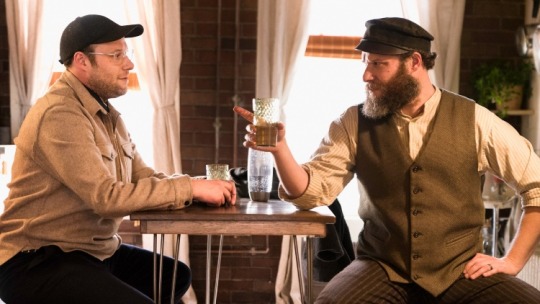
Seth Rogen plays a dual role in Brandon Trost’s comedy AMERICAN PICKLE, which will premiere on HBO Max this Friday. Based on Simon Rich’s short story “Sell Out,” the film starts in 1909 as Rogen plays Herschel Greenbaum, an Eastern European immigrant living in poverty in America when he falls into a pickle vat that’s sealed for 100 years, the brine keeping him the exact same age. He is put in touch with his great grandson Ben (also played by Rogen) who helps get him acclimated to the changes that have happened in 100 years, but it soon turns into a competition between the two relatives.
Using a fairly wacky take on the Rip Van Winkle-like premise, there’s a good chance that American Pickle will be more for the Seth Rogen diehards, myself included, because you get a LOT more Rogen maybe than ever before. His accent as Herschel might be a bit off-putting at first, maybe because you don’t want to laugh at him as a Jewish stereotype, but what ultimately makes the movie fun is watching Rogen playing two very different characters without being done in a way that the viewer gets distracted trying to figure out how they did it. (I guess ever since Moon, it’s become easier to have actors playing two different roles.)
Also, this is the first American movie in quite some time to shine a light on the Jewish faith and religion in a way we haven’t really seen in a while, going back to The Believer or Yentl. That’s nice to see in what started as a Hollywood release, although I’m just not sure this will connect with Rogen’s younger fans and probably was better off getting an HBO Max release.
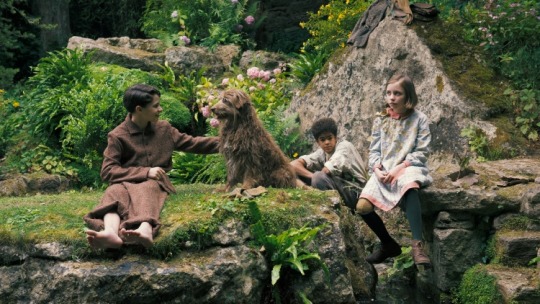
Originally planned for theatrical release, STXfilms’ adaptation of THE SECRET GARDEN is instead getting a PVOD release this Friday just like many movies this past summer. Adapted from Frances Hodgson Burnett’s 1911 book, it stars Dixie Egerickx as Mary Lennox, as a young orphan who is sent to live with her uncle (Colin Firth) in England. Once there, she contends with his disabled son Colin (Edan Hayhurst) and discovers a secret garden…that is basically just that. A garden.
I’ll make no bones that I was enthralled by the concept of Burnett’s being remade with “Harry Potter” producer David Heyman putting it together because it looked so fantastic at CinemaCon last year. The film is directed by Marc Munden, who has directed a ton of television but nothing particularly significant in terms of film, and it’s a wonderful-looking film but it just doesn’t have the heart and wonder of the 1993 movie. I just don’t see a lot of kids loving this, and this is from the guy who kinda liked Artemis Fowl. By comparison, this really doesn’t have much to keep one entertained as none of the child actors have much personality, and the adult actors (including Julie Walters) aren’t given much to challenge themselves. Maybe this would have played better theatrically but just watching it on my computer? Did very little for me. A generally pretty but ultimately dull kiddie movie.
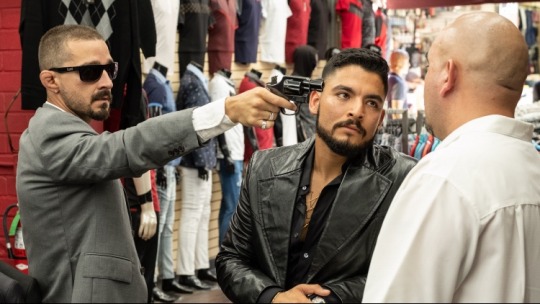
Suicide Squad director David Ayer returns to the streets with his crime-thriller THE TAX COLLECTOR (RLJEfilms), starring Bobby Soto as David, the eponymous “tax collector” for an L.A. crime family who has to contend with his boss’s old rival, putting his own family in danger. David’s enforcer, played by Shia LaBeouf, goes by the name “The Creeper.”
Like his Netflix movie, Bright, I have a feeling Ayer is not going to get a fair shake by the current critics’ pool since they’ll be writing all their reviews based on previous biases. Nothing new there. Fact is that The Tax Collector is on par with movies like End of Watch and is far better than Harsh Times, showing that the writer of Training Day and the original The Fast and the Furious has improved greatly as a director. (Honestly, this should have been proven by Fury six years ago, but you know how Hollywood is…)
I wasn’t particularly familiar with Bobby Soto before seeing this – he’s a fairly new actor – but he does a decent job carrying the movie and not letting the entertaining character played by LaBeouf completely steal the show. Likewise, Cinthya Carmona as Dave’s wife Alexis does a decent job keeping the film grounded with his domestic life. LaBeouf creates a fairly entertaining character that’s far more subdued than one might expect from LaBeouf.
There is one story decision made that I wasn’t crazy about, and honestly, it almost killed my enjoyment of the movie as a whole. Even so, the reason The Tax Collector works even as well as it does is because Ayer knows his shit, so instead of this being a tired tale of Crips vs. Bloods, it instead becomes one man’s journey, and in fact, he has to turn to his enemy for help in the final act, which is when it turns into more of a straight-up revenge thriller. If you like movies like Training Day and similarly authentic L.A. gangland tales, then The Tax Collector should be right up your alley.
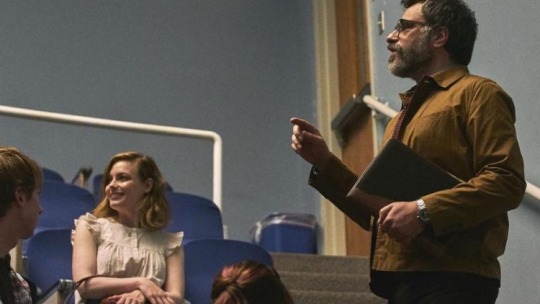
Gillian Jacobs stars in Kris Rey’s comedy I USED TO GO HERE (Gravitas Ventures), playing first-time author Kate, who is contacted by her old college professor (Jemaine Clement) to return to her Illinois Alma Mater to do a reading. Once there, Kate ends up hanging out with a bunch of the students and getting a little too caught up in their lives.
I definitely was a fan of Kris Rey’s previous movie Unexpected (under her married name, Kristen Swanberg), and I was hoping this would be in similar vein, but it just seems like another self-reflexive filmmaker telling a story about a writer revisiting their past. In other words, one of the most overused indie movie plots ever used. Sure, Jacobs is good but not great, and the plot is so predictable, especially the fact that Clement’s professor is gonna be a sleazebag. Sadly, what might have brought more to the movie was getting to see more of Jorma Taccone and his girlfriend, played by Kate Micucci (who was so great with Jacobs in Mike Birbiglia’s improv comedy, Don’t Think Twice). They show up for one brief scene and they’re gone, leaving it up to Jacobs and the otherwise weak cast to try to do something with material that just isn’t particularly inventive. The only one of the students who really has much of personality is Josh Wiggins’ Hugo but again, the movie takes his relationship with Kate to the most obvious and expected place possible.
I Used to Go Here has some fun moments but when you compare it to the Lonely Island’s other recent production, Palm Springs, it just doesn’t compare, and that’s kind of disappointing, in itself.
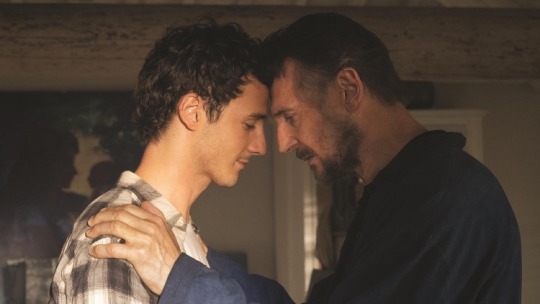
Liam Neeson and his son Micheál Richardson star in MADE IN ITALY (IFC Films), the directorial debut of actor James D’arcy with Neeson playing Robert Foster, a bohemian artist from England who travels to Tuscany, Italy with his estranged son Jack to sell the house they inherited from his late wife.
I have to imagine Sony Classics’ Tom Bernard and Michael Barker must be fuming that they’re not releasing this movie, because this is just so much their kind of movie. Listen, I didn’t hate this movie, but I also didn’t love it, and that’s mainly because it was so obvious and predictable, reminding me so much of Ridley Scott’s A Good Year (which I also didn’t hate, mind you).
The real draw is seeing Neeson doing a movie with his son in his such a major role, and they’re both very good with Richardson clearly having gotten his parent’s genes in terms of acting skill. (I don’t really remember him in the revenge thriller Cold Pursuit, but I could see him getting more roles from this.) Unfortunately, D’Arcy decides to throw the guys into a cutesie romance subplot with a local (played by Valeria Bilello), and that’s really where things start to unwind. It manages to recover nicely with a particularly emotional and dramatic last act, but it has to work hard to get the viewer back.
The fact that it took Ridley Scott decades to make a movie like A Good Year (and angering his fans for it), so the fast that D’Arcy can make a movie even comparable on his first foray into writing and directing makes Made in Italy something commendable.
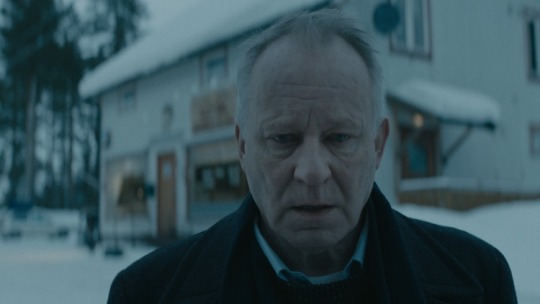
In Order of Disappearance (and its remake Cold Pursuit, starring Neeson and son!) director Hans Petter Moland reunites with that film’s star, Stellan Skarsgård, for OUT STEALING HORSES (Magnolia), an introspective adaptation of Per Peterson’s novel about a man in his ‘60s named Trond, who is reflecting on events from his childhood, including his relationship with his father and the mother of three who lived next door. Skarsgard is great as usual, but the film spends so much time in the past, and it starts to jump around between flashback time periods so much that I can only wish you luck that you can keep up with what is going on with all the characters. It’s pretty obvious this is based on a (presumably) beloved book – hey, it’s been translated into 50 languages! -- and I’m guessing that it probably worked better in that format, since I’m not sure those who haven’t read it will get much out of this film. I really don’t have much more to say about the film except that it looks absolutely gorgeous, really taking advantage of its setting, but it just didn’t do much for me generally.
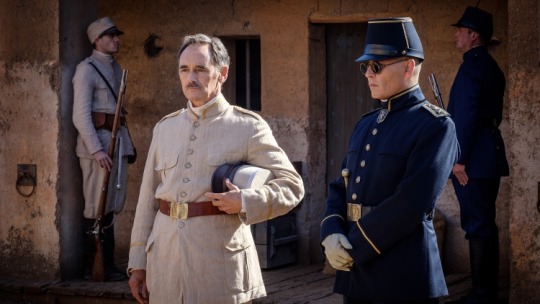
Colombian filmmaker Ciro Guerra’s WAITING FOR THE BARBARIANS (Samuel Goldwyn Films) may have the most apt title for a movie this week, because it feels like for a good long time, you are indeed waiting for those much-directed “barbarians.” Adapted by J.M. Coetzee from his own novel (which may or may not be beloved) the film stars Oscar-winner Mark Rylance as “The Magistrate,” who is in charge of a remote outpost in the Gobi Desert. He begins to question his loyalty to the British empire when the visiting Colonel Joll (Johnny Depp) conducts a series of torturous investigations on the detainees. Robert Pattinson also stars in a film that’s very different from Guerra’s previous films, Embrace of the Serpent and Birds of Passage, but mainly because it’s his first film in English.
The Barbarians in the title are the Mongolians threatening the British soldiers who treat them horribly while trying to expand their empire. Due to the sentencing, the movie may remind you of films like Beau Geste or even Lawrence of Arabia without really being as good as either.Rylance’s character is somewhat of a milquetoast, at least compared to the cold and heartless torturer played by Depp, but it’s obvious almost from the beginning that the rebellious nature of Rylance’s Magistrate is going to come back to hurt him, and it does.
There is no question that Rylance gives a great performance, and Depp isn’t terrible, but it takes quite some time for the story to really get to any place that’s particularly interesting. With such a great setting and characters, I was hoping for something just a little more interesting, and in many ways, it reminds me of Scorsese’s Silence where there’s a lot of interesting ideas and gorgeous images, but it just doesn’t come together in the end…. And it does indeed just end.
Let’s get to some docs…
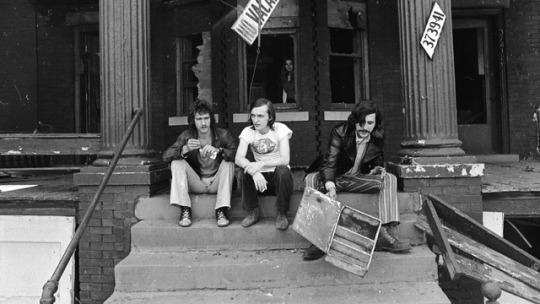
Scott Crawford’s doc CREEM: AMERICA’S ONLY ROCK ‘N ROLL MAGAZINE (Greenwich) looks at the venerable music mag of the ‘70s and ‘80s that offered an alternative to Rolling Stone with its look at punk, metal and non-conformist rock that fit with the nature of its staff, including the great Lester Bangs.
I’ve been looking forward to this doc for quite some time, because while I read Rolling Stone religiously, as well as Spin,every once in a while, some band or musician I liked would be on the cover of Creem Magazine, and I’d buy it. Granted, this was the mid-to-late ‘80s when the magazine was already not as cool, as it used to be but this doc, produced by founder Barry Kramer’s son JJ Kramer does a great job telling the story of how the magazine, originally based in Michigan, managed to shake up the mainstream music scene with its snarky sense of humor.
I was hoping to get more out of the doc, but I did like the music Crawford uses to tell the story of Creem, and there’s some seriously great talking heads along with it, including Thurston Moore, Michael Stipe, Chad Smith, Cameron Crowe, Joan Jett and more. Maybe not the best music doc I’ve ever seen, but it’s definitely very informative and recommended if you want to know more about music history.
The Russian hockey doc, RED PENGUINS (Universal Home), Gabe Polsky’s follow-up to his 2014 doc Red Army, covers how in the early ‘90s, the Pittsburgh Penguins decided to buy the Russian Army hockey team and how the new owners used marketing to make the Moscow Penguins world-famous – they even appeared in the ‘90s action film Sudden Death – before problems with the Russian MAFIA brought it all crashing down. Also a good doc, maybe not as solid as Red Army but Polsky once again has a lot of great characters to keep the movie entertaining, such as marketer Steven Warshaw and all the Russians who always seem to know more than they’re saying. If you’re a hockey fan, particularly this era in the ‘90s, you might enjoy Red Penguins.
Premiering on Disney+ this Friday is Don Hahn’s documentary HOWARD (Disney+) about the late lyricist Howard Ashman, who wrote the words for many of the popular Disney animated films like The Little Mermaid, Beauty and the Beast and Aladdin before dying of AIDS in 1991. I really wanted to see this movie because Hahn’s other documentaries have all been fantastic, but I got no response
I didn’t have a chance to watch Marion Johnson and Anne Flatté’s doc, River City Drumbeat, which will be available via Virtual Cinema this Friday, including the Maysles Documentary Center in New York. It follows Edwar “Nardie” White who has devoted his life to the African-American drum corps he co-founded in Louisville, Kentucky thirty years ago, as a new person, Albert Shumake, has to take up the mantle and lead the corps.
The Australian horror film BLACK WATER: ABYSS (Screen Media) is directed by Andrew Traucki and written by John Ridley -- not the John Ridley you probably know who actually can write -- but it deals with a group of friends facing a killer crocodile in the caves of Northern Australia. I normally would love this kind of movie, but this feels a lot like the type of schlock you might see on Syfy but it’s not because the writing or cast are particularly bad, just that it seems like something we’ve seen so many times before from Crawl to 47 Meters Down and its sequel that it doesn’t feel like this has much to offer. The problem is that it spends so much time making it seem like the water itself is dangerous to anyone who goes in it, but we always know that there’s a crocodile involved. Traucki goes so over-the-top trying to make this terrifying but there’s only so serious you can take a movie where people start shouting “Victor!” over and over while Victor is flailing around in the water being threatened by a crocodile we never really see particularly clearly. In other words, you get what you pay for on this one, so try not to pay too much.
After opening in select drive-ins last Friday, Amy Seimetz’s She Dies Tomorrow (NEON) will be available digitally and On Demand this Friday. If you missed it, I reviewed it last week. It was okay. Also, Sony Classics is returning to theaters, specifically with Guiseppe Capotondi’s The Burnt Orange Heresy, which got a protracted release due to COVID but will now open up in some of the movie theaters that have reopened.
Then there’s all the stuff I didn’t get around to seeing…. And hopefully, I didn’t miss something good in favor of some of the mediocre movies above… (sigh)
As far as horror and genre, there’s Daniel Tucker’s Nothing but The Blood (Gravitas Ventures) about a journalist sent to investigate a controversial church. Rudolph Herzog’s How to Fake a War (Vertical Entertainment) stars Jay Pharaoh as a rock star who’s worried his charity concert might fail if peace breaks out in the Eastern European country where it’s taking place. 1091 is releasing the supernatural thriller Star Light, starring Scout Taylor-Compton from the Halloweenremake, and The Stand: How One Gesture Shook the World, which is actually not about the Stephen King novel but is in fact, Tom Ratcliffe and Becky Paige’s doc about Tommie Smith and John Carlos’ decision to raise their fist in solidarity at the 1968 Olympics in Mexico City, only to receive major fallout for the gesture. (Kind of wish I had time to see that one, actually.)
Uncork’d is releasing Paydirt and Limbo while Midnight Releasing is putting out Invasion Earth this week. All of these could be grand, but I just didn’t have the time to find out. Sorry.
Metrograph’s new Live Screenings series will continue this week with Kevin Rafferty and James Ridgeway’s Feed (1992) running through Friday along with a 10th anniversary screening of the Bill Withers’ doc Still Bill. Friday will begin the theater’s Satoshi Kon Retrospective, starting with Perfect Blue on Friday and then the equally-classic Millennium Actress starting next Monday.
Available via Film Forum’s Virtual Cinema is Ramona S. Diaz’s documentary A THOUSAND CUTS, that takes a look at the war between the Philippine government and the media after Filipino journalist Maria Ressa receives a guilty verdict in her trial. Ressa’s news site “Rappler” was investigating the government-sanctioned drug war against the country’s impoverished actors that had left the streets filled with bodies after Rodrigo Duterte is elected President in 2016.
Film Movement’s Virtual Cinema will be screening Peruvian filmmaker Melina León’s Song Without a Name about an indigenous Andean woman whose baby is taken from her.
Premiering on Netflix this week is the teen comedy Work It while Amazon Prime has the Scottish coming-of-age comedy Boyz in the Wood and Showtime has something called The Good Lord Bird. All great I’m sure but this is what happens when you dump so much stuff onto the same effin’ weekend.
Next week, more movies not in theaters!
By the way, if you read this week’s column and have bothered to read this far down, feel free to drop me some thoughts at Edward dot Douglas at Gmail dot Com or drop me a note or tweet on Twitter. I love hearing from readers … honest
#TheWeekendWarrior#Movies#Reviews#AnAmericanCollector#TheTaxCollector#TheSecretGarden#OutStealingHorses#CreemDocumentary#RedPenguins#IUsedToGoHere#WaitingForTheBarbarians
0 notes
Text
001. Content: The New Global Religion
One central thesis, as I look over my list of topics, that seems pretty clear throughout is that content and entertainment really are a new religion. And I don't mean this in some kind of glib way. The book and subsequent TV series American Gods examines this very idea. If religion ever really could've been considered the opiate of the masses, our current Beloved and Precious never-ending stream of Content is pure, Grade-A Oxycontin, and we don't even need a prescription for the shit.
Think about this: a person who grew up in a Judeo-Christian framework might say, as they are going through a hard time, that Jesus is with them. But we all know that this is a metaphor, that they mean the spirit of Jesus is with them, not an actual person standing right next to them. And this could apply to any number of faith-based religions. Even if you include the tangible goods of a faith– a prayer rug or a cross are the first two that jump to mind – to ground metaphor and spirituality into something you can touch, these will be left lacking against our New God, Content.
Cause Content doesn't care what faith you subscribe to. Content is there for you in a very real, very tangible way (as tangible as video streams and bandwidth might be). You can pull out your phone, or your computer, or watch your TV, and there's Content, only asking for your time and attention (and some small amount of money, of course) as tithes. Your house of worship is wherever you have a signal. You don't have to go anywhere, because it'll come to you. Where religious faith is stuck in the past and can only try and comment on current events in the framework of ancient texts, Content is ever malleable, ever responsive, always new, always fresh (even when it's a remake). Movies, shows, music, social media posts (and all they can encompass) – Content can and will change forms, as long as you stay engaged and sacrifice your eyeballs.
You can easily be polytheistic nowadays. Content doesn't mind if you worship Allah. Just make sure you have room to worship the Algorithm as well.
And I don't mean this any of this as a scold. Hell, I'm as guilty of this shit as anyone reading this. I've binged series, read Twitter Threads, watched and liked IG videos, read the newest longform oral histories, gotten lost in YouTube K-holes, and throughout it all Content has smiled at my appreciation and disdain equally. After a day of work, be it hard, mind-numbing, or any combination of the two, and the d-needs of Maslow's hierarchy are all up in your shit, what do you wanna do: interpret some old-ass religious texts and figure out how they apply today? Or you want to take a more passive role and let someone else examine the world for you? To say nothing of the fact that it'll give you social status and possibly even An Interesting Take on The World (more on this in a future post).
The craziest thing about all this is how subtly it happened. Can you imagine the idea that TV stations in the past would at some point just run test patterns, because there wasn't any content to fill that space? To return to a previous metaphor, if media was like an opiate in pill form, at first, we only took one pill a day, per the doctor's orders. But over the past 70 years, we graduated to 20, 50, 100 pills every couple hours, baby, and keep em coming, cause we can't get enough.
So what, you might say? The world is hard, and complicated, and we all need to turn off our brains sometimes. I don't totally disagree with that (another future topic will address this in greater depth). But all this is a preface so that we might figure out the following: is Content a panacea, or a placebo? Can it lead to opening people's minds, or even actual progressive action, in the real world? And on the flip side, can it – has it – idealized some of our worst possible behaviors, and simply presented them as The Truth, not just in the fake world of Content but the actual, real world?
The next two posts will examine these ideas. Until then–
0 notes
Text
My Little Pony: Beyond Good and Evil
This is a guest post written by Alex Stump:
My two little brothers have been watching My Little Pony for a long time now. I watched a couple episodes (and also the unholy spin-off series Equestria Girls) and I’ll be 100% honest…My Little Pony: Friendship Is Magic is a really good show. But don’t get the wrong idea, I’m not coming out as a Brony. I, as an 18-year-old man have better things to do then obsessing over a show made for seven year olds. Which really fascinates me, what is it about this kid’s series that attracts so many young adults? It’s a question that has been going around since the show premiered and the most widely accepted questions/theories I’ve seen are:
A) People like MLP for the same reason people like Star Trek or Firefly.
B) These people had terrible childhoods and they watch MLP to experience the childhood they never had.
C) These people had awesome childhoods and watch MLP because it gives them a sense of nostalgia.
And D) People watch MLP because they’re mentally handicapped.
These answers have some truth to them but I find them to be mostly flawed…So how about I give you my own answer to the question. Sure, everyone has his or her own reason for watching, but I think there’s a unifying reason why. You see I believe the reason why MLP is so popular and why it stands out in the entertainment industry is because the show has a “thing”.
What is this “thing” you ask? Well, this “thing” is very important to fiction. It goes all the way back to ancient times. It was prevalent in the 20th century but sadly is being abused and forgotten in the 21st century. Let me give you some examples:
(Example 1) The Adventures of Robin Hood is a 1938 film staring Errol Flynn and tells the tale of Robin Hood and his merry men. This movie has great action scenes,
good acting, amazing sets, and is quite possibly the happiest go lucky movie I’ve ever seen. Seriously, this film is so happy I dare you to watch it without smiling. Robin and his merry men are tons of fun to watch. They’re funny, smart and most of all virtuous. The women are great too, they’re modest, beautiful and don’t complain about the traditional family structure. Just about every character in the film has an enjoyable personality. We see medieval society portrayed in a mostly positive light, which is nice to see. Even religion gets a good light and in the end everyone lives happily ever after.
The movie’s really good; it’s a beloved classic for a reason. (Seriously, this movie’s good. If you haven’t watched it already, WATCH IT!!!)
Now let’s talk about the 2010 Robin Hood movie directed by Ridley Scott. This film isn’t what you’ll call happy. Robin Hood is not a righteous nobleman but a lying criminal who desserts the holy crusade and fights the evil stereotypical French. The women are awful, the church and medieval society are both portrayed in a negative light and the rest of the movie is just dark, gritty and forgettable. Guess what? The movie wasn’t well received, with critics like Roger Ebert calling the movie “innocence and joy draining away from movies.” Now there’s a new Robin Hood movie coming out this year and apparently it’s yet another dark and gritty take on the Robin Hood story. Just what the masses wanted, am I right? (Example 2) Superman! Who doesn’t know the man of steel? He is the most well known superhero in the DCU. His origin story’s an all-time classic; he is a common role model for kids and adults, his sidekicks and super villains are good. Most importantly, he saves kittens stuck on trees. Even if you don’t like Superman, nobody can deny the cultural significance he has all over the world. He is more then just a superhero, he is the superhero…In the new Superman movies however, and he is anything but a superhero. In the DC cinematic multiverse, Superman’s a nihilist, he fails to save people, kills his enemies, and lets his emotions get the better of him. He treats his life as a superhero not as a duty, but a curse. When Superman (spoiler alert!) dies in Batman v Superman nobody gives an anti-life equation, because that guy on screen is not the man who has everything. What happened to the Superman?
(Final Example): Star Wars is one of the greatest space operas ever made. A movie with amazing characters, a classic story and groundbreaking special effects. They’re movies that pay homage to Akira Kurosawa and the serials from the 30s and 40s. A story that borrows from East Asian philosophy and the archetypes of Joseph Campbell. A story with a great amount of historical symbolism, ranging from WW2, the French Revolution and the Roman Empire. Yet with all of the complexity and metaphor, the original Star Wars trilogy (and to some extent the prequels) is nothing more than simple kids movies…the new films by Disney I wouldn’t call simple. The new movies lazily rehash the plots from the original films but without the symbolism and archetypes. The new heroes are either too perfect or too flawed, there’s pretty obvious political messages floating around and all the original characters we know and love have forgotten everything they learned from Jedi and they all die. Don’t complain though, because filmmaker JJ Abrams will call you sexist for not liking the movies. (It makes you wonder what goes on behind the scenes.)
So, what exactly is this “thing” that My Little Pony, Star Wars, Robin Hood, and Superman have in common that their modern day remakes and sequels lack?
Heroism. No, really. Heroism or just simply, the heroic character is the most common archetype in storytelling and the most important. People naturally draw themselves towards heroes because they represent some kind of greater good, whether it be, faith, bravery, hope, charity and yes…friendship. When done correctly, the heroic character becomes a timeless icon. I mean look at my examples again. Superman is good not because of his superpowers but because of his character. Superman’s an immigrant, a stranger who uses his alien powers to help others. He stands for truth, justice, and the American way. No matter how bad the situation is, he never kills people. (For more on this subject, watch the animated movie Superman vs. the Elite or read the comic book it’s based on.)
Robin Hood (from The Adventures of Robin Hood) is a great character not just for his romantic, charismatic personality but also for what he’s fighting for. He fights an illegitimate authority and wants to return King Richard back to the throne of England. He believes him to be the rightful king, and he will sacrifice everything in order to get him back. Robin Hood knows he’ll bring a good, just government to England.
And Star Wars is a classic tale of good defeating evil, growing up into adulthood, redemption, and a tale of low-lifes becoming great heroes. Let’s look at Han Solo for a minute. Sure people talk about how cool Han Solo is like how he shot-first but in my opinion that’s not what makes him an amazing character. In the beginning of A New Hope, he’s a jerk to Luke. He doesn’t believe in the Force. He’s not a man of honor and only cares about money. However he slowly starts to care about Luke and Leia and discovers faith in the Force and after going through so much trouble and getting everything he wanted. He comes backs to save Luke, allowing him to destroy the Death Star. Despite not being a man of the book he is still a hero inside. Which if you really think about the real hero in the original trilogy it is Han, not Luke.
People look up to these heroes because they inspire us. Not to put on capes, overwears and conduct vigilantism, no, but to never give up hope, to always take up virtue and to know that good always triumphs…which really lacks in modern day entertainment. A lot of modern storytellers don’t understand heroism and don’t know why it’s so important to many classics. The new Superman movies suck because they don’t have any of Superman’s trademark heroism. Like I said, he kills the bad guys, he fails to save people and loses control of his emotions. That’s not a hero. The new Star Wars movies suck because all of the new characters are these god-like Neanderthals who have no reliability that made the original characters great. No all of them are sad old people who don’t learn anything. In fact, many remakes and sequels of classic stories are sad in tone when their originals were not-why is this? Well we all know why, it’s all because of the postmodern viewpoint that heroism is a fantasy and in real life everything that makes a hero doesn’t exist. Such a worldview is really bad and it shows in many original stories today. I mean look around you, fiction’s so dark it’s become commonplace for a piece of entertainment to take place in a post-apocalyptic world or dystopia where all authority is bad, all hope is lost, God doesn’t exist and the only thing that’s metaphysical is politics. There aren’t any heroes, only cynical, morally ambiguous, deeply flawed characters with little to no sympathy. When the day is saved and the bad guy is defeated it usually ends on a very bitter note like nothing was every achieved. Does that sound entertaining to you?
Plus, when you get right down to it, a lot of these stories are shockingly bad. Many fields of entertainment aren’t being made by talented people but by executives who only care about money. Their writing is lazy, quality over substance, completely mindless with characters that are either one dimensional to two-dimensional, which writers try to hide it by making them inherently flawed. Now an inherently flawed characters is perfectly normal as long is there’s some sort of payoff or balance, However tons of writers today fail on both, causing audiences to feel alienated from the protagonist because the story literally gave them reasons not care about his or her struggles. Mix that all up with a problematic imagination and an unsubtle political agenda and you get a match made in limbo. Again, a lot of these problems come from this false interpretation of heroes not being real. Of course heroes are real. Anyone can be a hero. We enjoy fictional heroes because they remind us that good exist; If there is no hero, then there’s no value, if there’s no value then people don’t care and if people don’t care then the story is forgotten and then lost in time. I know every story can be different In form but the most popular formula is about heroes saving the day which is being desecrated in the modern era…
However-and I can’t believe I’m about to say this (or write this) My Little Pony is the exception. In the show, heroism isn’t ignored or perverse but accepted. The characters do heroic acts and they’re celebrated for it. Almost every character is nice, trustworthy and never cynical or morally ambiguous. The world they inhabit isn’t nasty, but a beautiful place, one that’ll make you wish you lived there. The show promotes many positive messages with a huge focus on friendship being the best ever, and no matter how dark the show gets (and believe me the show can get surprisingly dark at times) none of the heroes give up hope and they all lives happily ever after.
Plus, the show is well made. It’s not created by greedy executives but by talented people who’ve been working on cartoons for decades. The dialogue is funny, most of the episodes are smart, the characters are well-developed, the music and animation is surprisingly great and the show’s smart enough to not go P.C. Compare this to other television shows like The Walking Dead, Game of Thrones, Big Bang Theory, The Handmaids Tale and every show on the CW, MLP is one of the few TV shows that’s actually good. Wouldn’t you agree?
I think the reason why so many young adults watch MLP is because many of them are so tired and fed up with how much fiction has merged with postmodernism and choose to watch this simple kids show, Not only for being smart and entertaining, but also celebrating something many of them haven’t seen in a long time…and that’s a story of good people doing good things…But hey, that’s just a theory! A game-wait a minute? What’d you guys think? Was my theory on the brony phenomenon absolutely right, absolutely wrong or was it missing a couple of points?
My Little Pony: Beyond Good and Evil published first on https://medium.com/@ReloadedPCGames
0 notes
Text
My Favorite Songs I Discovered in 2017
I thought I’d do something a little bit different. I have discovered a lot of new songs from artists I’m familiar with and completely new ones. I have found old gems that I somehow missed, and things that were released this year. I have always been a lover of music, in many shapes and forms.
Here is an extensive list of my favorite songs I’ve discovered, in no particular order, and why I love them so much.
In The Shape of Longing- Hammock (Disquiet Benefit Album Volume 1, 2017)
I discovered Hammock a few years ago through a YouTube mix video. One of my closest friends had shared their 2016 album Everything And Nothing with me and it is my favorite album of theirs to date. In March of this year, the same friend told me about this song, made as part of a huge collaboration put together by the group Unseen. The album was made with the intention of giving 100% of profits to charities supporting a multitude of things from refugees to environmental protection.
This song is possibly my favorite of Hammock’s they have ever made. It is calming and otherworldly beautiful. I listened to it almost religiously when studying for my online A&P class at the start of the year. It soothes me and pulls me away from the madness of the world into a blanket of peace.
Ashes of Eden- Breaking Benjamin (Dark Before Dawn, 2015)
Breaking Benjamin was a weird favorite of mine in middle school/high school. It was edgier than what I was used to listening to but my angst-driven preteen self loved it. I got into them in 2009, after the newest thing they released was just a “best collection” album. 2015 rolled along and they had new content for the first time in six years, though I only listened to two of the three singles they released to promote the new album.
I first heard this song the day immediately after I watched Yu-Gi-Oh!: The Dark Side of Dimensions for the first time. I was still mentally recovering from the roller coaster of emotion that movie left with me, and that was in part what helped me resonate with the song. I could see bits and pieces of the song fitting with parts of the movie. “Will the faithful be rewarded when we come to the end?” “Are you with me through it all, then why can’t I feel you?”
This is also probably the calmest out of all of Benjamin’s songs, which I enjoy a lot. Compared to more intense songs with loud guitar and screaming (though I do enjoy some of those songs too), the instrumentals are still powerful but gentle. Benjamin’s voice is as beautiful as ever, and to me seemingly amplified by the absence of the typical instruments you’d hear in his other songs. It’s a breath-taking piece that I absolutely love and to this day gives me huge chills.
Heretic Pride- The Mountain Goats (Heretic Pride, 2008)
I had heard a lot about The Mountain Goats over the years, mostly from John Green, and only started listening to it last year. My favorite song from them so far is Heel Turn 2, though I had discovered that gem last year courtesy of Welcome to Night Vale. Heretic Pride was a “recommendation” for me after listening to that one in particular.
I enjoy a lot of the work of The Mountain Goats, but there is something especially enjoyable about this song. It describes a man as he experiences the act of being dragged out to be burned at the stake for heresy (as the song title suggests). But he isn’t distressed or even scared. He is proud. He laughs, he describes the smell of honeysuckle and the taste of jasmine. It reminds me of the nameless poem about Icarus which ends with “There is a certain beauty in setting the world on fire and watching from the centre of the flames”. This song captures that feeling perfectly; depicting a moment of failure as a moment of triumph.
The Last Song I’m Wasting on You- Evanescence (Lost Whispers, 2016)
Another gentler piece from a “darker” group I frequently enjoyed in my preteen years. This was part of a collection of outtake songs and some remasters that was released last year, that I only discovered earlier this year.
The only instruments in this piece are the piano and Amy Lee’s haunting voice. A quiet song fitting for the message of a person who had been quietly dealing with a toxic relationship for too long. The last minute or so of the song has a faster piano and ends on a confident note. “Don’t bother breaking the door down; I’ve found my way out, and you’ll never hurt me again”. A hopeful message to anyone who was ever in a harmful relationship, that there is a way to break out. While it is not a powerful declaration, it is still a victory. It feels like I can almost see Amy smile as she sings that last line.
I’ll Be That Girl- Barenaked Ladies (Stunt, 1998)
Stunt was an album that came out when I was barely a year old. I grew up listening to three of their songs frequently; One Week, It’s All Been Done, and Leave. I loved all of those songs growing up, and recently when I put the album on a thumb drive to listen to in the car I would just skip to those songs and move on, until one day in September when I took the time to listen to the songs. There were several gems I found among them (Call and Answer, Who Needs Sleep, and Never Is Enough specifically), but I wanted to talk about this one.
Steven Page’s voice is one of my favorites to listen to, which is part of what makes this song so enjoyable. Despite the darker tones of the song and the veiled message of suicide with “if I had a gun, there’d be no tomorrow”, it is a fun song I have found myself singing along to in the car.
Less Words- Old Earth (a low place at The Old Place, 2012)
The “rustic” aesthetic is something I’ve found myself warming up to over the years. Old Earth is a folk group who has done a handful of songs, and I was only able to discover them through the daily vlogs made by YouTuber WheezyWaiter.
It was love a first sound with this song. There is something serene and laid-back with the gentle guitar and the slow pace overall. While I’d prefer to find an instrumental version, the singing is done in a voice that fits the song beautifully and makes me think of cozy sunsets and long drives through flatland.
Inner Universe- Origa (Stand Alone Complex, 2003)
While I never watched Ghost in The Shell (the original or the live-action remake), I knew it was something my dad enjoyed when it came out. We both enjoyed the film “Appleseed” based on the world created by the same mangaka. It was my friend who showed me Hammock music that introduced this gem to me.
I was blown away by the perfect blend of harmonies made by the enchanting voice of the late Origa. It’s a song that sweeps me into a world full of things to be discovered. It’s fitting that this was the opening theme of the spin-off anime series Stand Alone Complex (which I’d love to see now), and I listened to it frequently while studying Anatomy and Physiology for school.
Gryning- Carbon Based Lifeforms (World of Sleepers, 2006)
CBL was a group I discovered four years ago and was something that fueled my creative drive thanks to their album Hydroponic Garden, which revived a sci-fi project I began brainstorming when I was ten years old. I have only recently listened to the majority of their work, and I adore their new album Derelicts which came out in October of this year.
Gryning, and the entirety of World of Sleepers, was something I found during my final course through Anatomy and Physiology. The aesthetic of the album fit well with the mood of studying the functions of the body, and that’s something I personally feel fits in this song especially. It feels like discoveries are being made, as you intimately study the form and design of a human body and everything dawns upon you, which is fitting since “gryning” is a Swedish word for “dawn”.
0 notes